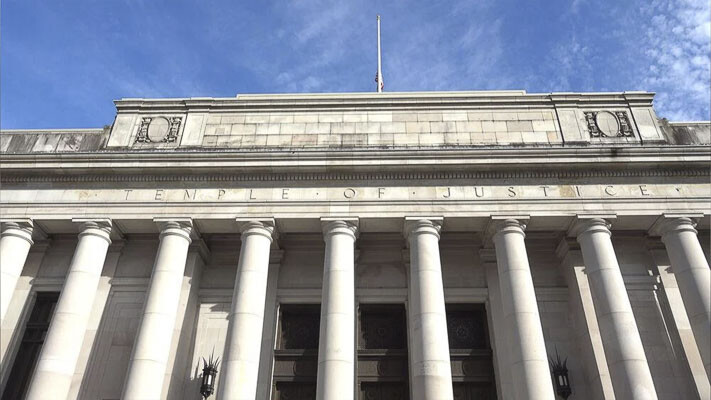
The state Legislature passed the capital gains tax in 2021; it creates a 7 percent tax on profits of more than $250,000 from the sale of some assets, such as stocks and bonds
Brett Davis
The Center Square Washington
The Washington State Supreme Court has upheld the constitutionality of the state’s capital gains tax. The court released its 7-2 ruling on Friday morning.
The state Legislature passed the capital gains tax in 2021, and Gov. Jay Inslee signed it into law. It creates a 7 percent tax on profits of more than $250,000 from the sale of some assets, such as stocks and bonds.
Last March, Douglas County Superior Court Judge Brian Huber ruled the tax was “properly characterized as an income tax…rather than as an excise tax as argued by the State” and struck it down. The state constitution’s uniformity clause does not allow income to be taxed at different rates.
State Attorney General Bob Ferguson directly appealed the decision to the Supreme Court, which in July agreed to hear the case.
In November, the Supreme Court allowed the state Department of Revenue to begin collecting the tax white it considers the state’s appeal.
Oral arguments were heard before the state’s highest court on Jan. 26.
Supporters of the tax contend the capital gains tax is an excise tax on a good or service and not an income or property tax, as opponents claim, because it applies to sales or transfers of assets.
Justice Debra Stephens sided with supporters in writing the court’s majority opinion.
“The capital gains tax is appropriately characterized as an excise because it is levied on the sale or exchange of capital assets, not on capital assets or gains themselves,” she wrote. “This understanding of the tax is consistent with a long line of precedent recognizing excise taxes as those levied on the exercise of rights associated with property ownership, such as the power to sell or exchange property, in contrast to property taxes levied on property itself.”
She continued, “Because the capital gains tax is an excise tax under Washington law, it is not subject to the uniformity and levy requirements of article VII [of the state constitution]. We further hold the capital gains tax is consistent with our state constitution’s Quinn v. State, No. 100769-8 4 privileges and immunities clause and the federal dormant commerce clause. We therefore reject Plaintiffs’ facial challenge to the capital gains tax and remand to the trial court for further proceedings consistent with this opinion.”
This report was first published by The Center Square Washington.
Also read:
- Opinion: ‘I’m more than just a little skeptical that IBR officials are doing everything they can to limit the cost of this project’Ken Vance shares his concerns over rising costs and limited contractor interest in the Interstate Bridge Replacement Program.
- Director of Washington Parents Network to speak Sunday night at Washougal churchDavid Spring of the Washington Parents Network will speak May 18 at Bethel Community Church in Washougal on alleged violations of parental rights in Washington schools.
- Clark County settles wrongful shooting lawsuit for $3.5 millionClark County will pay $3.5 million to the family of Jenoah Donald following a fatal officer-involved shooting during a 2021 traffic stop.
- No tax on tips, child tax credit and business tax cuts survive in big House GOP billThe U.S. House Ways and Means Committee passed a major GOP tax bill including cuts for businesses, temporary no-tax-on-tips benefits, and adjustments to the child tax credit.
- Letter: ‘IBR has relied on this video to instill fear in the public and government officials to promote the construction of a new bridge’Bob Ortblad questions IBR’s use of a seismic video and urges a shift toward tunnel alternatives in this critical letter to the editor.
- Vancouver City Council approves $11.15 million to help create or preserve 330 affordable rental homesVancouver City Council has approved $11.5 million in housing funds to support 330 affordable homes for seniors, families, and vulnerable residents.
- Troubled TriMet and fleecing taxpayers with LRTJohn Ley analyzes TriMet’s ridership decline and what it signals for post-pandemic public transit in the region.












To absolutely no one’s surprise, the Washington State Witche’s Coven sided with the moneygrubbers and their frontman Fergy the Flatulent.
For those who naively believe that this is a tax “on the rich”, realize that it is now all but certain that a state income tax is coming your way. But don’t worry, they will still keep the high sales and property taxes so that you really feel the pain. But by all means, keep voting for liberals.
Real World Dictionary definition: “liberals” = satanworshippers.
Just wait until you sell your house that you paid $250K for 8 years ago, and it sells for just 2 cents over $500K, and see just how this “tax the rich” scheme/scam “taxes the rich”…..
The article states that gains from sale of real estate are exempt. Or have I misread?
Just wait as see. Remember WHO is saying RE sales are exempt. Do you REALLY believe them? If so, I’ve got some spare bridges for sale at bargain prices…..
Ok, this don’t take no rokut skiunc to figger out: WHERE are the GREATEST number of Capital Gains taking place? Ooooh! Did you guess Sales of Real Property? Do you really think the parasites are going to let ALL those “ill gotten gains” slip past their greedy fingers? I’ve still got some spare bridges left if you need any….. 😉